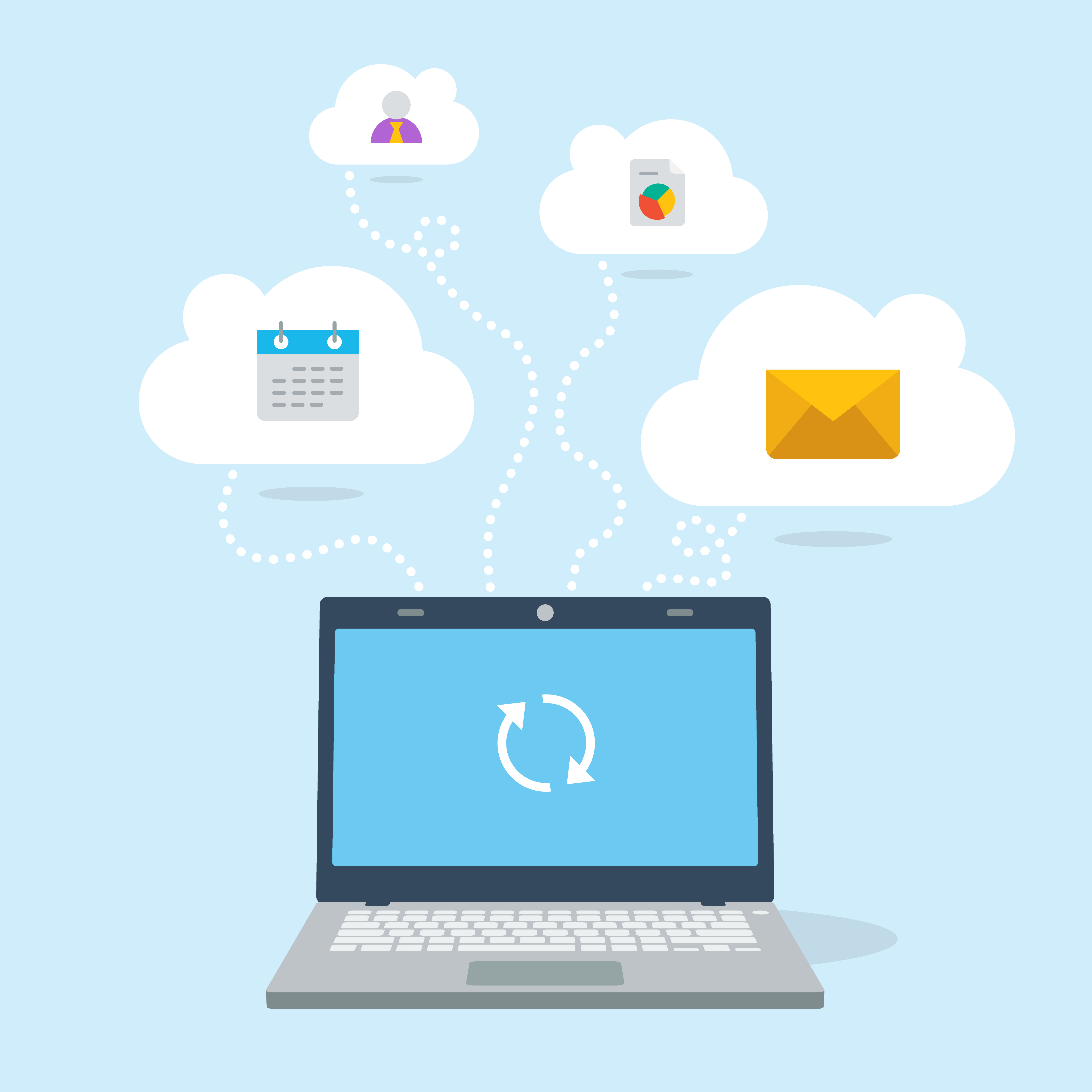The Best Practices for Data Backup
Data Backup | November 30, 2021

Data loss can be devastating for any business regardless of their size or the industry they work in. Whether your data was corrupted, accidentally deleted, or lost due to physical hard drive damage, having an effective data backup in place can mitigate this disaster. As leading providers of comprehensive IT solutions and data backup services, the team at Next Hop Solutions know how vital data security and backups can be. That is why our team has compiled a list of the best practices for data backup to help operations easily recover lost or corrupted data and get back to work quickly.
Learn about the different types of data backup.
5 Key Practices for Effective Data Backup
Businesses of all sizes in any industry can benefit from the following data backup practices:
1. Use Remote Storage
One of the most important steps you can take to ensure your data is safe and secure is to use remote backups. Offsite or off-server backups will provide you with valuable data even if your central servers are compromised. This means that you will be able to easily recover data that would otherwise be lost due to corruption or physical disasters.
2. Backup Files Frequently and Regularly
Creating data backups frequently and on a regular schedule can help prevent the loss of critical files and account information. Be sure to take the time to determine how often your data is being updated so you can create an appropriate timeline of how regularly your data should be backed up.
3. Keep Backups Encrypted and Protected
In some cases, backing up your business data in an offsite location is not enough to keep your data safe. While encrypting the files will require additional time and work, it can help ensure that your backed up data is not compromised in any way.
4. Give the Highest Priority to Crucial Data
When deciding what data should or should not be backed up, it is important to take into consideration how much you are willing to risk losing. Since certain files like database and accounting files tend to be the most critical assets for any type of business, these types of files should be backed up before and after any significant use. For some businesses, this might mean backing up the files every day.
5. Test the Backups Before You Need Them
Before a disaster strikes, it is always a good idea to test your data recovery plan and try restoring a few files onto a different computer at another location to ensure that your data backup software is working properly.
To learn more about our data backup solutions or to inquire about our other services, get in touch with the experts at Next Hop Solutions. We can be reached through our online contact form and will be happy to answer any questions you may have regarding our services.

Data loss can be devastating for any business regardless of their size or the industry they work in. Whether your data was corrupted, accidentally deleted, or lost due to physical hard drive damage, having an effective data backup in place can mitigate this disaster. As leading providers of comprehensive IT solutions and data backup services, the team at Next Hop Solutions know how vital data security and backups can be. That is why our team has compiled a list of the best practices for data backup to help operations easily recover lost or corrupted data and get back to work quickly.
Learn about the different types of data backup.
5 Key Practices for Effective Data Backup
Businesses of all sizes in any industry can benefit from the following data backup practices:
1. Use Remote Storage
One of the most important steps you can take to ensure your data is safe and secure is to use remote backups. Offsite or off-server backups will provide you with valuable data even if your central servers are compromised. This means that you will be able to easily recover data that would otherwise be lost due to corruption or physical disasters.
2. Backup Files Frequently and Regularly
Creating data backups frequently and on a regular schedule can help prevent the loss of critical files and account information. Be sure to take the time to determine how often your data is being updated so you can create an appropriate timeline of how regularly your data should be backed up.
3. Keep Backups Encrypted and Protected
In some cases, backing up your business data in an offsite location is not enough to keep your data safe. While encrypting the files will require additional time and work, it can help ensure that your backed up data is not compromised in any way.
4. Give the Highest Priority to Crucial Data
When deciding what data should or should not be backed up, it is important to take into consideration how much you are willing to risk losing. Since certain files like database and accounting files tend to be the most critical assets for any type of business, these types of files should be backed up before and after any significant use. For some businesses, this might mean backing up the files every day.
5. Test the Backups Before You Need Them
Before a disaster strikes, it is always a good idea to test your data recovery plan and try restoring a few files onto a different computer at another location to ensure that your data backup software is working properly.
To learn more about our data backup solutions or to inquire about our other services, get in touch with the experts at Next Hop Solutions. We can be reached through our online contact form and will be happy to answer any questions you may have regarding our services.





